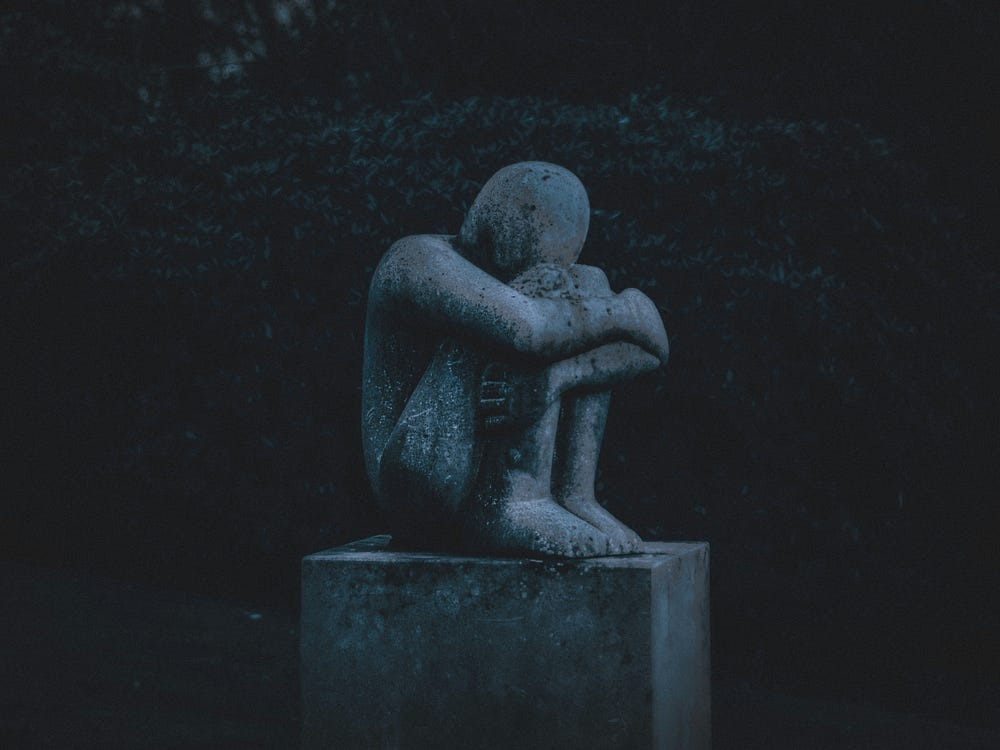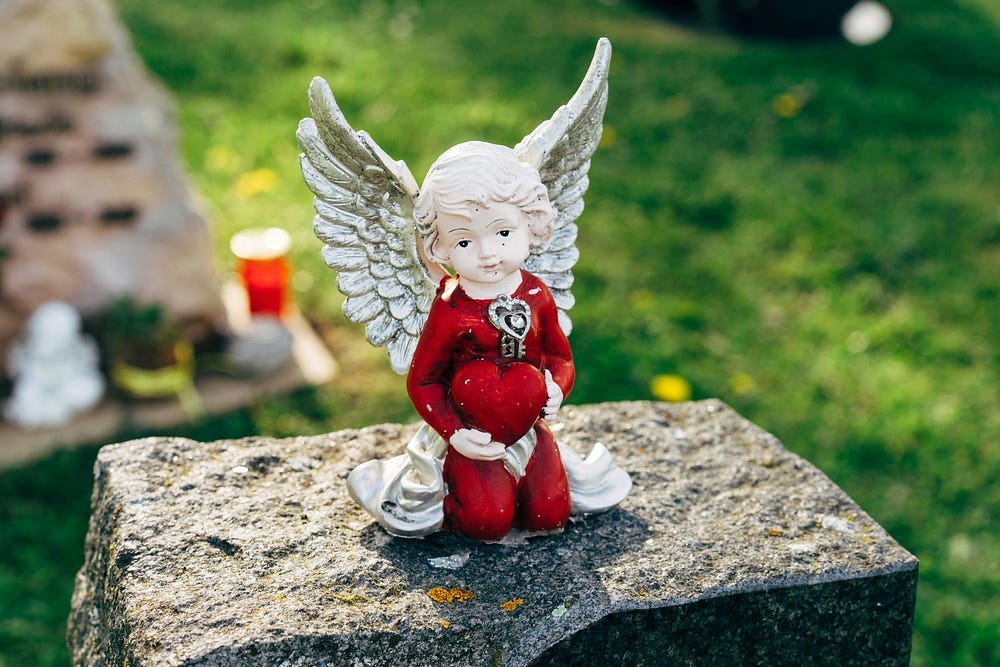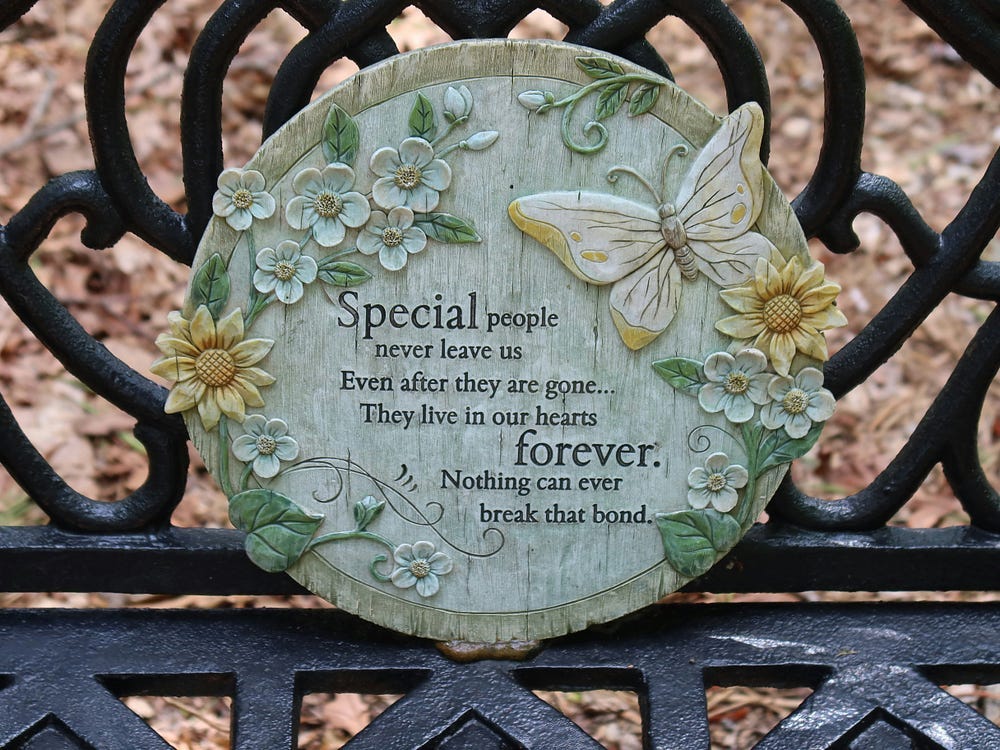What we’ll be talking about in this article:
The five stages of grief is a fallacy
Grief & complicated grief
How we remember people
Ceremonies of remembrance

The five stages of grief is a fallacy
In 1969, Elisabeth Kübler-Ross, a Swiss-American psychiatrist released a book called On Death and Dying and the five stages of grief manifested into the world.
You will most likely have heard of them before, but here’s a wee reminder they are: denial, anger, bargaining, depression, and acceptance.
The main problem with the stages is that they were presented linearly.
Thus the majority of people to this day still think that they are stages to be met along the journey, like collecting stamps on a hiking trip.
This is not the case.
Very soon after the book was published, research was published saying that the five stages as they were presented were very unhelpful for people experiencing grief.
I’d love to spend the whole article talking about why the five stages are a fallacy but we can certainly say that because they aren’t linear that’s the first thing against it.
Cultural differences across the world also show that it cannot be a one-size-fits-all approach and, from a more scientific point of view, empirical evidence just doesn’t back them up.

Grief & complicated grief
Grief is the most normal thing to go through after the loss of a loved one. It is not only fixed to death though, it can also occur when a relationship ends, or even when a job is lost. However, it is, of course, more connected with death.
When we grieve we go through a whole gamut of emotions and they are to be both expected and they will be completely different and unique for every person. You and a sibling may lose your mother but you both may grieve in vastly different ways.
Complicated grief is when the grieving process goes on for a longer time, where it is more intense and it has a significant impairment on daily life.
It’s a terrible thing to have to go through and should you be experiencing complicated grief you should reach out and get help rather than go it alone.
It wasn’t on my list of things I had really wanted to do as a counselor but for some reason, almost all of my first clients were suffering from complicated grief so I rolled up my sleeves and tried to learn as much about it as I could.
How we remember people
Let’s think about our minds as the best memory-storing device in existence. Some psychologists actually think that our brains can memorize everything that’s happened to us. I’m not so sure but it’s certainly where our memories are stored.
As such, the reason we grieve is very much associated with how our memories work.
Let’s say a loved uncle dies. Since childhood, he’s been a positive influence on your life, always ready with a joke but able to be a shoulder to cry on when needed too. But now that he’s died you miss him. You really, really miss him.
What’s happening then in your mind is that, well, your mind isn’t physical, it doesn’t know that Uncle Bud has passed away and so while the majority of the memories stored concerning him in the ‘Uncle Bud’ folder in your memory bank have all been good, now what’s happening is those old, great memories are being tainted by these new ‘bad’ memories that are concerned with missing him.
With complicated grief, it’s even worse. For example, you may have had a strained relationship with the person who has died and you dwell on things you ‘should have, would have, ought to, might have’ (what in English grammar are called the conditionals) said to them while they were alive.
Of course, this is going to add even more stressful memories to a memory bank that might not already have been in the best of shape before the person died.

Ceremonies of remembrance
How then can we rectify the situation? Well, the best answer I have found with working with people suffering grief is to create ceremonies of remembrance or rituals for the lost loved one.
The best example I can give concerns a woman who lost a very special and influential aunt. The aunt had been a mechanic and a massive WRC fan. WRC is the World Rally Championship. It’s not the most popular motorsport so if you don’t know it, it’s basically really, really, really crazy people, driving very fast cars over very dangerous roads, over gravel, snow, sand, and sometimes tarmac…which, I believe you Americans call asphalt.
We came up with the idea that when WRC races are televised, she was to sit down with a pen and paper and while watching it (she had very little interest in the sport) she would write down memories and thoughts concerning her aunt.
The one rule was that once she caught herself writing in the conditionals (should/would/could/ought to etc.) she had to stop and cross out that line and begin again.
You will obviously notice that what’s going on here is bolstering the mind’s memory bank of positive memories concerning the lost loved one rather than allowing the new ‘bad’ memories since the loss occurred to take over.
Hi, I’m Paddy. Thanks for reading my article about the psychology of grief.
I’m a counselor and spirituality teacher.
If you’d like to contact me regarding a counseling session or about writing, you can contact me here.
You can make a donation here, Paypal or via Bitcoin.
My different social media channels are here.




